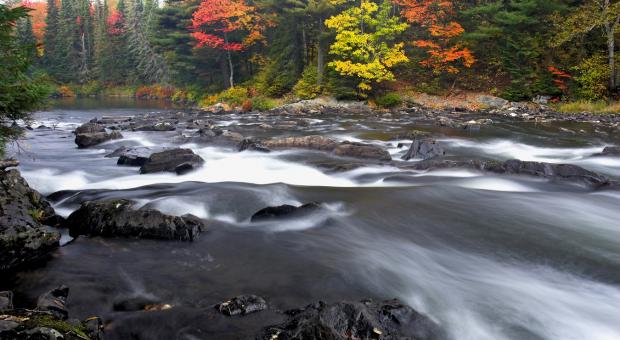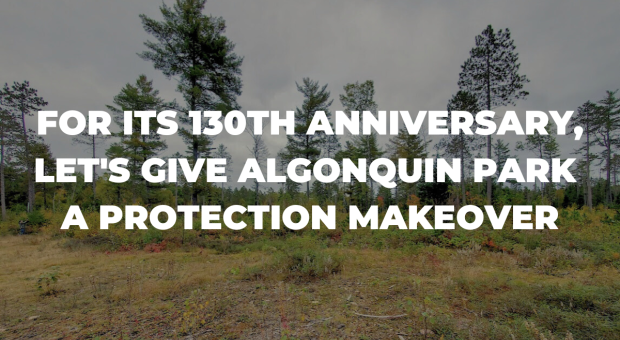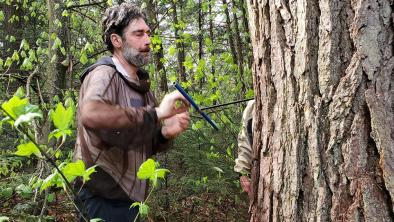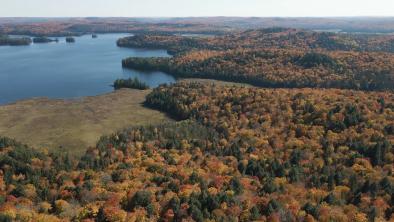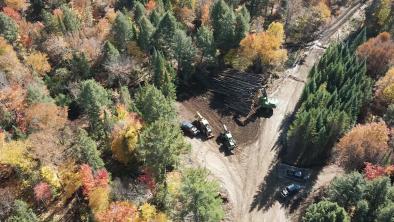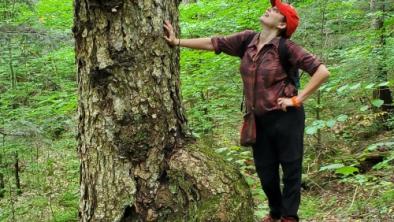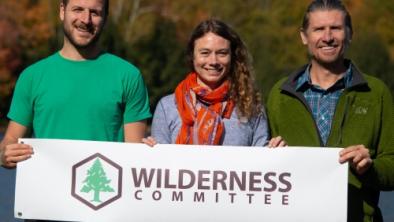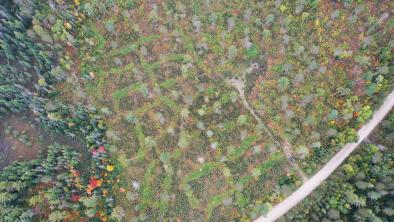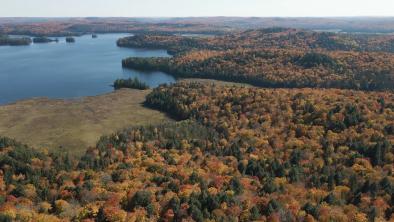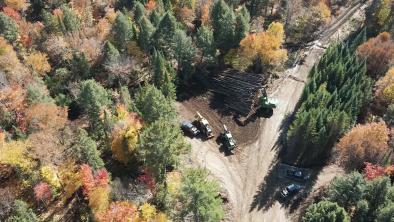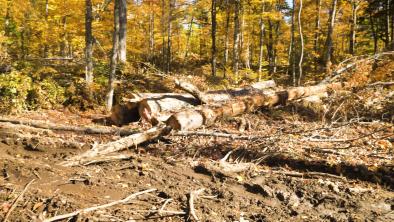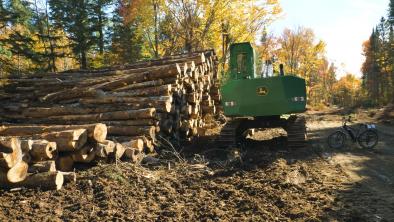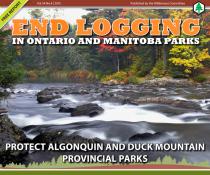Defending the nature found in provincial parks is our responsibility to future generations. Protected forests, grasslands and freshwaters are incredible places for people to develop relationships with nature and gain solace and ecological knowledge. Protections prohibiting industrial activity in parks help preserve the biodiversity necessary for a healthy world, giving us clean water, air filtration and slows climate change.
Algonquin Provincial Park, Ontario’s first designated park in1893, is immensely popular as a natural destination in Ontario — it contains the highest concentration of self-sustaining trout lakes in the world and maintains the southern range of many of Ontario’s large mammal species like moose, wolves, black bear and marten. It is also an important habitat for many species of small mammals, birds, reptiles and amphibians and forms the headwaters for four major rivers. Its beauty and wildlife are world-renowned.
But many Algonquin visitors are unaware it is also the most at risk park in the province. Almost two-thirds of it is designated for industrial logging. In fact, it’s one of only two parks in Canada where logging is still occurring. This exception for logging, which is banned in all other parks, means Algonquin does not meet international definitions for protected places and the majority of the park management prioritizes timber harvest rather than ecological integrity. Even the most careful logging operations can threaten species at risk and other ecosystem values. Protected areas must provide a haven from such threats. Instead, while more than 2,100 km of canoe routes draw people to Algonquin to experience nature, there are more than 6,000 km of logging roads impacting the ecological integrity of Algonquin park.
In 2014, the Environment Commissioner of Ontario released a report calling on the Ontario government to remove logging from Algonquin, as enough wood supply existed outside the park to provide fibre for local mills. The government so far has not acted. With your help we are working to pressure the Ontario government to make a new plan for Algonquin that ends logging and prioritizes ecological protection.
While protecting nature in provincial parks is a priority for the Wilderness Committee, we also acknowledge the colonial history and ongoing injustices to Indigenous peoples that provincial parks represent. The majority of Algonquin Park lands fall in the unceded traditional territories of 10 Algonquin nations, who were displaced and disenfranchised by settler logging and trapping practices and by the establishment of the park borders. The Ontario government is currently involved in negotiations for a new Land Claim process with the Algonquins of Ontario. Development of a new plan for Algonquin Park is an opportunity to redress these injustices and re-centre Indigenous stewardship of the land.
Map of Past and Future Proposed Logging in Algonquin Provincial Park
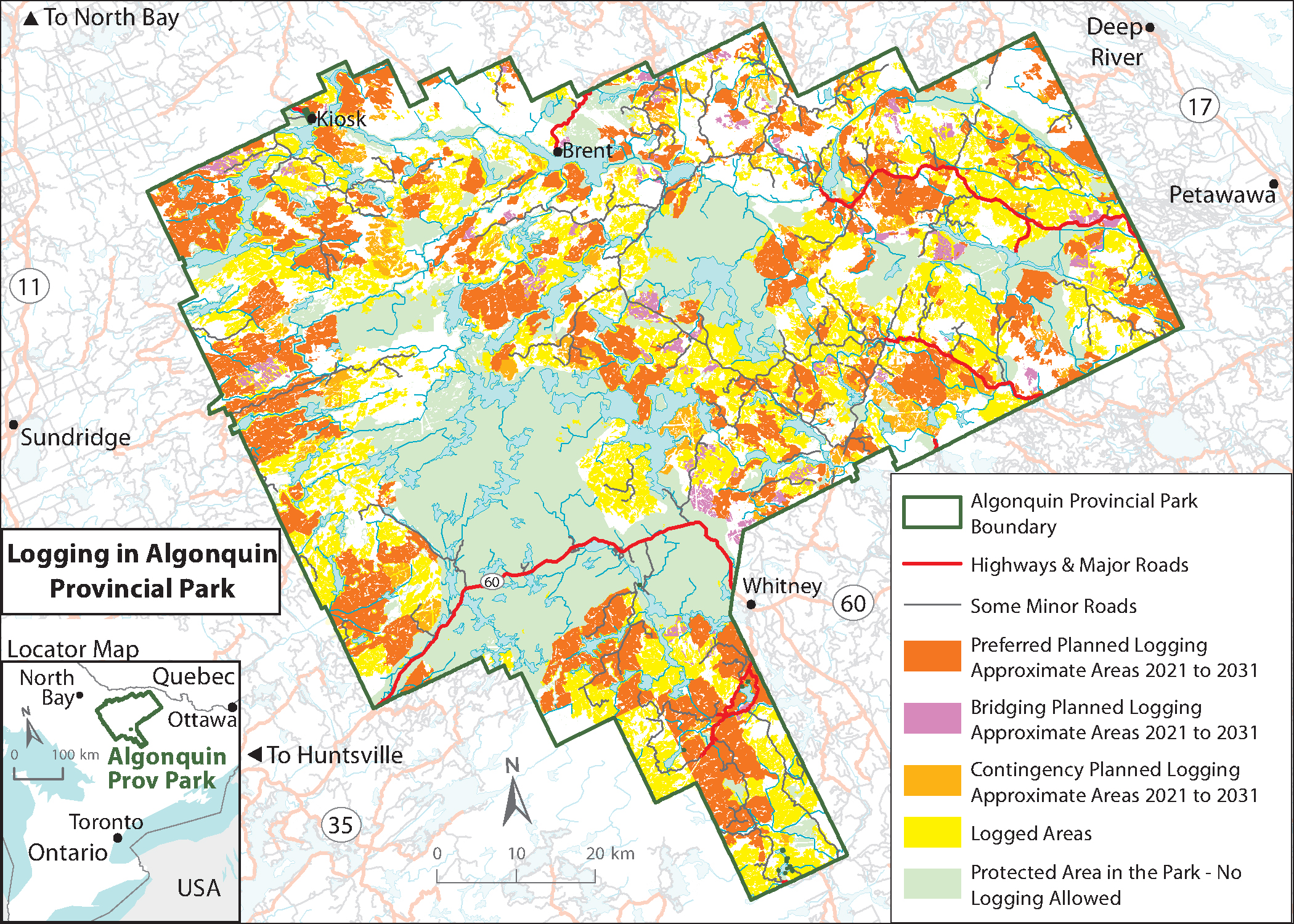
Your much appreciated donation keeps this work going!
Get in on the action and make a difference!
Help spread the word!
Parks should be protected – not logged Algonquin Provincial Park in Ontario and Duck Mountain Provincial Park in Manitoba are two popular parks that share the dubious distinction of being the two Canadian parks with long-term logging operations continuing inside their boundaries. The idea of...
